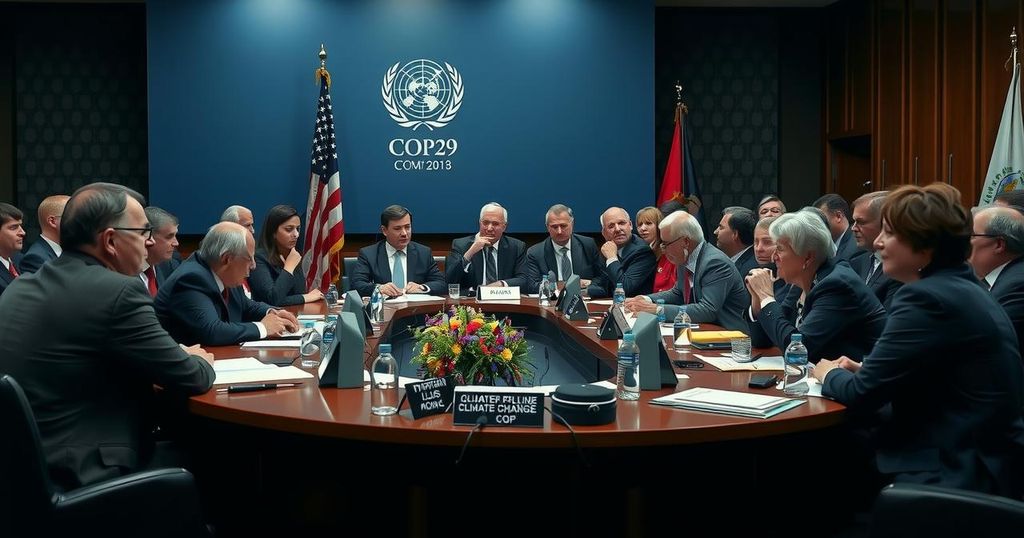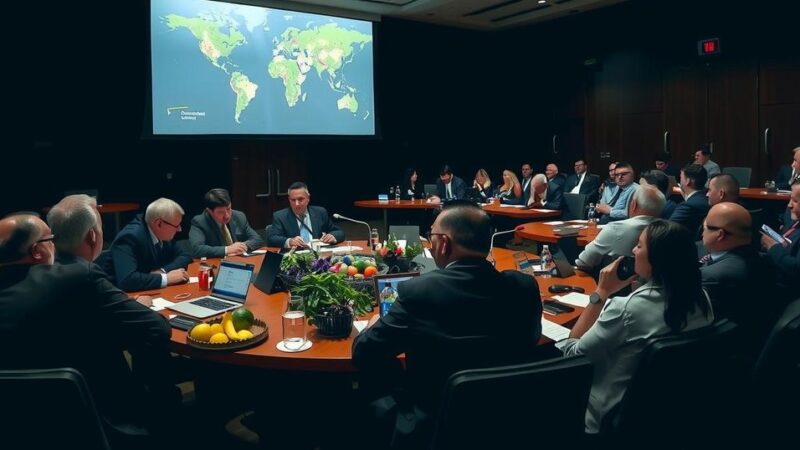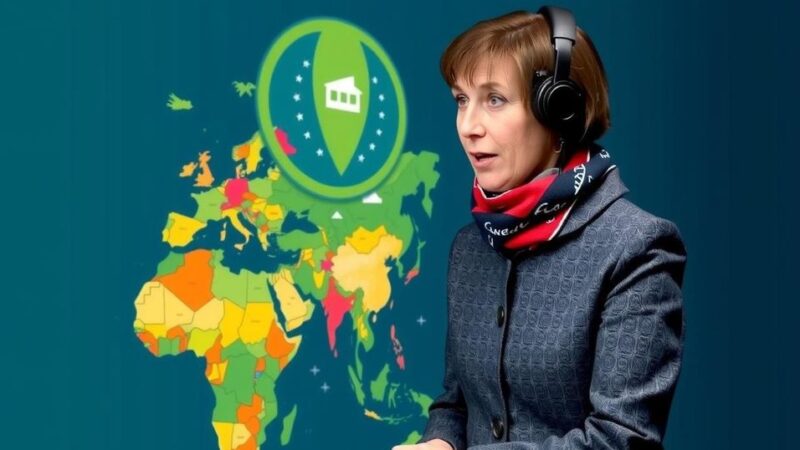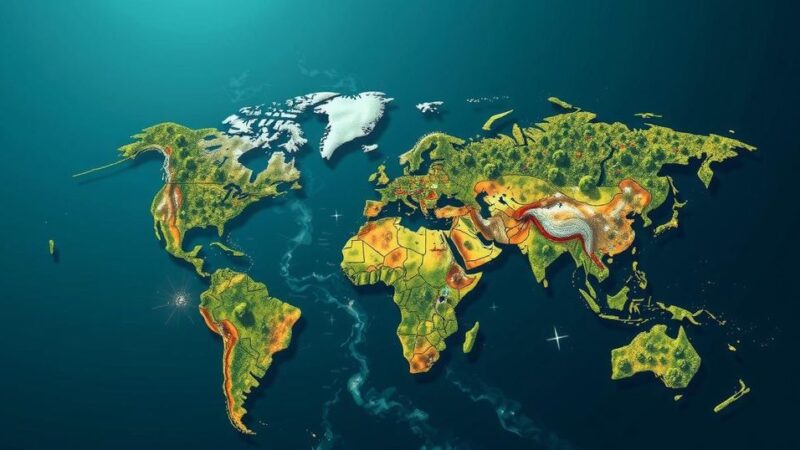At COP29, world leaders are divided over climate change strategies as carbon emissions reach record highs. Preliminary research urges for net-zero emissions by the late 2030s to meet the Paris Agreement goals. While some leaders defend fossil fuel use, others emphasize immediate action and increased climate finance for developing nations facing severe transformations due to climate change.
World leaders are sharply divided during the ongoing COP29 climate talks, held in Azerbaijan, where new warnings emphasize the urgent need for action on climate change. Preliminary findings from the Global Carbon Project indicate that emissions from fossil fuels have reached unprecedented levels, necessitating a revised goal for achieving net-zero carbon dioxide emissions by the late 2030s to adhere to the Paris Agreement’s 1.5 degrees Celsius target. Yalchin Rafiyev, Azerbaijan’s lead negotiator, emphasized the dwindling timeframe, advocating for immediate action to secure potential agreement on climate financing, which is crucial for developing nations facing climate-related challenges. The discussions revealed contrasting perspectives, with some leaders promoting continued reliance on fossil fuels while others underscored the pressing risks associated with climate disasters. Prime Minister Edi Rama of Albania criticized the lack of participation from certain leaders, stating, “our speeches full of good words about climate change, change nothing.” Conversely, Prime Minister Giorgia Meloni of Italy called for a balanced global approach, cautioning against prioritizing decarbonization at the expense of societal sustainability. Furthermore, negotiators introduced a new draft deal on climate finance, though critical disagreements persist over financial commitments from wealthier nations. Issues regarding financial obligations dominate the conversation, with developing countries urging developed nations to fulfill an annual commitment of at least $1.3 trillion. Many donors express reluctance to allocate substantial new funds from their public budgets, preferring to focus on private sector contributions that some organizations criticize as unrealistic. Philip Davis, Prime Minister of the Bahamas, highlighted the disparity in funding for climate initiatives compared to other global crises, questioning the commitment to addressing climate change adequately. As the COP29 negotiations progress, the divergent opinions and urgent financial discussions illustrate the complexities of international climate action and the critical need for unity and decisive measures to combat climate change effectively.
COP29, held in Azerbaijan, serves as a pivotal platform for global leaders to address climate change. This gathering follows alarming research indicating that CO2 emissions from fossil fuels have surged to record levels, necessitating more immediate action to meet climate goals established under the Paris Agreement. The divergent views among leaders reflect the challenges in balancing economic priorities with urgent climate responsibilities, particularly for developing nations that suffer disproportionately from climate impacts. The focus on climate financing is particularly crucial, considering the ongoing economic pressures and the need for robust support for adaptation and transition to cleaner energy.
In summary, COP29 highlights the rift among global leaders regarding strategies to address climate change, particularly in light of new reports forecasting record-high emissions and the urgent need for accelerated action. Calls for expanded financial commitments to support developing nations contrast with hesitations from wealthier countries to allocate significant resources. As the negotiations unfold, it remains critical for nations to reconcile their differing perspectives to achieve cooperative and effective climate policy solutions.
Original Source: www.wionews.com






